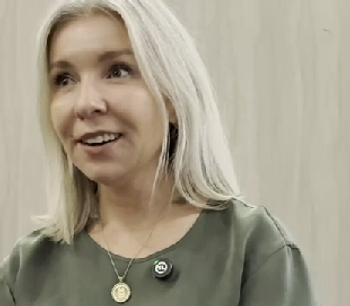
Forensic Psychiatrists Vote No on Proposed Paraphilias
Forensic psychiatrists expressed near-unanimous opposition to 3 controversial new sexual diagnoses after a spirited debate at a recent conference of the American Association of Psychiatry and Law (AAPL).
Forensic psychiatrists expressed near-unanimous opposition to 3 controversial new sexual diagnoses after a spirited debate at a recent conference of the American Association of Psychiatry and Law (AAPL).
The votes against Paraphilic Coercive Disorder, Pedohebephilia, and Hypersexuality were 31-2, 31-2 and 29-2, respectively. All 3 conditions are being considered for the DSM-5.
The rejection follows a similar landslide vote against Pedohebephilia at the International Association for the Treatment of Sexual Offenders meeting in Oslo in September, 2010. Europeans voted 100- to- 1 against the pedophilia expansion following a speech by psychiatrist Richard Green, “Hebephilia is a mental disorder?” Green served on the Gender Identity Disorders subcommittee for DSM-IV and in the 1970s was a leading advocate for removing homosexuality from the diagnostic manual.
The votes are symbolic, but send a strong message to the DSM-5 developers. One of the 6 AAPL debate panelists is a member of the DSM-5 Paraphilias SubWorking Group, and 2 other panelists are advisors to the committee.
The 3-member “con” team focused on the dearth of scientific reliability or validity supporting the proposed conditions. They also stressed the likelihood of misuse by partisan advocates in the forensic arena.
This is the third time that Paraphilic Coercive Disorder has been considered as a diagnosis for rapists. It was rejected for inclusion in the DSM-III-R on the basis of its inadequate scientific foundation and a lack of acceptance among psychiatrists. Thomas Zander, a psychologist and adjunct law professor at Marquette University in Wisconsin, took the “con” position. Arguing for the proposal was David Thornton, treatment director at Wisconsin’s detention center for civilly committed sex offenders.
Taking competing positions on Hypersexual Disorder were 2 prominent psychiatrists with decades of expertise on sexual disorders. Richard Krueger, on the “pro” team, is a Columbia University professor and medical director of the Sexual Behavior Clinic at the New York State Psychiatric Institute. APA Distinguished Fellow John Bradford, arguing “con,” directs the Sexual Behaviors Clinic in Ottawa and was an advisor to the DSM-IV and past president of the AAPL. He expressed concern about how clinicians could reliably determine the point at which sexual interest becomes excessive, and voiced worry that the label might be disproportionately applied to gay men.
Arguing for and against Pedohebephilia were forensic psychiatrist Douglas Tucker and forensic psychologist Karen Franklin (this reporter), respectively. The diagnosis would expand pedophilia from its current definition, in which the target of sexual attraction must be prepubescent, to young pubescents as old as 14 years. Franklin,1 whose comprehensive historical review was published in Behavioral Sciences and the Law, pointed to problems with its reliable application, especially in adversarial contexts. Tucker argued that the diagnosis is needed for clinical treatment.
The debate, titled “Stirring the DSM Cauldron,” was organized by forensic psychiatrist Lynn Maskel, a clinical professor at the University of California, San Diego. Its outcome has kindled lively discourse on professional listservs in the sex offender niche.
The controversy has also stimulated more than a dozen published rebuttals. Scholar Raymond Knight of Brandeis University, for example, published a call of alarm against Paraphilic Coercive Disorder in the Archives of Sexual Behavior.2 On the basis of his decades of research into the etiology of sexual violence, he says rape propensity is not a distinct “taxon,” but, rather, it exists along a continuum among normal men.
“The DSM should be a repository for the best models that science can produce,” Knight said. “PCD not only does not approach this hurdle, it seems not even to be in the race yet.”
Martin Kafka, a member of the Paraphilias Sub-Working Group for the DSM-5, has publicly acknowledged that the scientific literature supporting the 3 proposals is “quite modest.” At a plenary session of the Association for the Treatment of Sexual Abusers meeting in Phoenix last month, he said he would consider it a victory if the proposals even made it into the appendix as conditions meriting further study.
References:
References:
1. Franklin K. Hebephilia: Quintessence of diagnostic pretextuality. Behavioral Sciences and the Law. 2010 Jun 28; [Epub ahead of print]. DOI: 10.1002/bsl.934.
2. Knight RA. Is a diagnostic category for paraphilic coercive disorder defensible? Arch Sex Behav. 2010;39:419-426.
Newsletter
Receive trusted psychiatric news, expert analysis, and clinical insights — subscribe today to support your practice and your patients.







